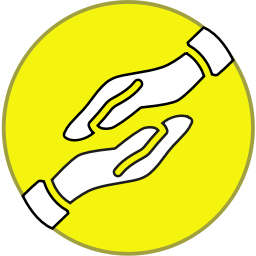90-day transcribing challenge: Final update
This morning I finished day 90. I used two types of content:
1) Clearly spoken stuff:
Slow Chinese, HSK5 recordings, and a magazine podcast for natives. Sometimes I prepared subtitles beforehand using WorkAudioBook, and during the transcribing session I thus was able to do corrections immediately after each line. This lead to time "wasted" doing the corrections, but also stopped me from repeating the same mistake again. Other times, I did not prepare subtitles, and just used WorkAudioBook for automatic segmentation, and did the corrections after finishing each session. This, of course, can cause an accumulation of errors in repeated words, but also means I could write more in a session, as I was not distracted with corrections. So... The left column in the data is not very consistent in how it was done, and even less with the material used. In day 52 I forgot to start the pomodoro clock, so I got an outlier score. I'm leaving it out of the monthly averages.
2) A TV drama called Great Marriage.
I downloaded both mp4 video and srt subtitles from YouTube and used them with the fantastic Lingual Media Player, which can automatically stop after each subtitle line and makes it easy to toggle subtitles. In 90 days I only reached episode 8 of a 40+ episode drama, and that's watching long parts without transcribing! So, with this abundance of ready-made material, the right column is consistent both in source and in execution.
During the first 75 days, I did 2 pomodiri (50 minutes) per day for each column. But two weeks ago I signed up for December's HSK5, so, to make time for vocab study and practice tests, during the last 15 days I only did 1 pomodoro (25 min) per day for each column. So, in order to "normalize" the scores with the previous days, I added a *2 in the formula.
You can also notice that around day 32 I also started to seriously attack my Pleco SRS backlog. The number here is how many pending cards I have each morning.
My observations:
Clearly spoken stuff
You'll notice that during the last month my average score actually dropped for "clear stuff". Maybe in part because I switched exclusively to a magazine podcast for natives in day 60. I must add that, although this podcast is for natives, the magazine is a Chinese translation of the English original, and the podcast is actually just read from the magazine, so it's not at all like 原来是这样 or any similar 100% native, conversational podcasts.
TV drama
In the graph, you'll also notice that, after a fantastic increase in comprehension from the fist month to the second month, the're no such big increase for the third month. Maybe I'm hitting "diminishing returns" with this particular drama. Still, I've learned a lot!
HSK5
As mentioned, I'm attacking HSK5 on December, just as a personal challenge, not for scholarships or anything. My cousins, who are Chinese teachers at the local Confucius institute, passed this exam two years ago and then went on to get their Master's degrees in China, but my current level is nowhere near what theirs was two years ago! My current level fits perfectly the B1 description given by the Europeans. Still, after measuring myself with a couple of old HSK5 papers, I discovered I can pass, even if they completely discard my two essays. So in part I'm taking the test to prove a friend of mine that HSK is actually just B1... So I signed up for a test preparation class at the local Confucius. Nobody else signed up for level 5, so I accepted being put with level 4 test takers. My teacher can't speak Spanish, which helps.
Conclusion
So yes, this helps. The data shows it. I believe this has mostly given me confidence with my handwriting, as, before this, I only wrote individual words. This will certainly come in handy during the HSK5 writing part, because the only option available in my country is the paper test. During my attempts with past papers, I found this part to be the most relaxing. I can finish it in half the time. Of course, with awful grammar! (My teacher will help me with my writing). I haven't really done any traditional study of grammar after an introductory course back in 2012. It's been mostly input, input, and more input, particularly after I finally took Chinese seriously in 2015 and started with Heisig's Remembering Simplified Hanzi. Of course, I've checked difficult to understand points with Pleco and the Chinese Grammar Wiki along the way.
So, what will my listening practice be now? I'll be attacking every single HSK5 past paper I can find, so that will be it, for the most part. I'll also keep watching the drama with LaMP, but without transcribing it. I might transcribe dubbed videos of talks, however, just to keep writing.
Thank you for reading! Suggestions are welcome. I'm attaching the raw data, the monthly averages and a sample of my "day 90" handwriting. Now my focus will switch to reading speed, as it's currently my weakest point. I'll soon write another post about it.
-
 4
4
-
 1
1




4 Comments
Recommended Comments